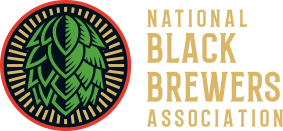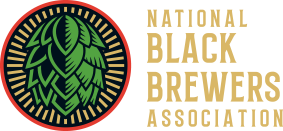Frequently Asked Questions
General
FAQs
What is the National Black Brewers Association?
The NB2A is a registered 501c6 non-profit organization dedicated to create a more inclusive and vibrant beer industry by providing Black brewers access to the resources, mentorships, and networks needed to thrive.
What is its purpose?
The NB2A has five goals:
- Promoting the Black brewing community.
- Increasing the number of African American individuals in the brewing industry at all levels of production, especially ownership and brew-masters.
- Exercising influence by developing and advocating for effective policies.
- Serving as a centralized clearinghouse for business advice, mentorship, training, workforce development, education and communication.
- Fostering historical context and legacy surrounding African American influence on brewing in the United States.
Why is this important?
The craft brewing business accounted for nearly $29 billion in beer sales last year, which is nearly one-quarter of the $120 billion beer industry revenue in the U.S.
Out of the nearly 10,000 craft brewers in the county, only about 1% are Black individuals.
How many Black breweries are there currently in the U.S.?
Our recent research has determined that there are about 85 Black breweries in the US. Of the 85 breweries in operation, many do not have a brick-and-mortar location.
How will the NB2A raise money?
The NB2A is raising money through corporate sponsorships, along with membership and business council dues.
Likewise, the NB2A is raising funds through the Black is Beautiful Vol.2 initiative.
Who are the founding members of the Board of Directors?
The National Black Brewers Association was founded in February 2023 by Kevin Johnson, owner of Oak Park Brewery, and boasts a dynamic Board of Directors comprised of the most experienced and successful Black brewery owners and brewmasters across the country.
Founding Board Members:
- Marcus Baskerville, Weathered Souls Brewing Co.
- Celeste Beatty, Harlem Brewery
- Clarence Boston, Hippin’ Hops Brewery
- Alisa Bowens-Mercado, Rhythm Brewing Co.
- Denis Ford-Sawadogo, Montclair Brewery
- Chris Harris, Black Frog Brewery
- Rodney Hines, Métier Brewing
- Aaron Hose, One Pint at a Time
- Teo Hunter, Crowns & Hops
- Dr. J. Jackson Beckham, Crafted For All
- Kevin Johnson, Oak Park Brewing Co.
- Khris Johnson, Green Bench Brewing
- Garret Oliver, Brooklyn Brewery
- Jon Renthrope, Cajun Fire Brewing Company
- Ale Sharpton, Piano Keys
Who is the Executive Director?
Kevin Asato, a 30-year veteran of the beverage industry, is the Executive Director. Asato brings a wealth of knowledge and expertise to the position, having previously held leadership roles at major beverage distributors across the country.
What is National Black Brewers Day (October 10th)?
On October 10th, 1970 Theodore A. (Ted) Mack, Sr. and his business associates celebrated the purchase of Peoples Brewing Company in Oshkosh, Wisconsin with over 2,000 guests, including stockholders, local and state legislators and notable dignitaries. On this day Mr. Mack became the first Black brewery president in the United States, and Peoples Brewing Company became the first Black-owned brewery in U.S. history. The purpose of Black Brewers Day is to have a day where beer fans around the country can pause to acknowledge and celebrate the history, contributions and efforts of Black brewers and Black-owned breweries in the United States.
Membership
FAQs
How will you accept and determine membership?
The NB2A has the goal of having 100% of Black brewers join along with hundreds of other Black brewing industry professionals.
Black-owned businesses and professionals can join by clicking the "Join Now" button and completing the membership form.
Will there be membership dues?
Membership dues are currently based on brewery size or industry type.
Yes, brewery/business memberships cost $250 and individual brewing industry professional memberships cost $75 (effective Jan 1, 2026)
What are the benefits of joining the NB2A?
- Access to Brewers Association, state guilds, wholesalers, distributors, and other influencers.
- Vehicle through which to advocate at federal level for city priorities.
- Tools, educational, business development and technical training and best practices.
- Access to NB2A grants and scholarship opportunities.
- Opportunities for government and private grants.
- Opportunities to network with Black brewers.
Black
Brewing History FAQs
Why is there such a paltry number of African Americans in the brewing and brewery business?
Brewing in the U.S. is an industry that requires considerable access to capital whereas Black Americans as a whole have limited financial means given challenges arising out of historical and institutional racism, much of which is perpetuated today.
Has this always been the case?
- No! Beer occupied a central role in pre-colonial West African religion and social life – and still does. From Africa to Colonial America to the modern day, Black Americans have had a historic relationship with beer-making. Says the culinary historian and writer Michael W. Twitty: “One of our Africanisms, in fact, was producing all these things (beer, liquor, wine) and one of the reasons why we did that was because it was related to our traditional spirituality.”
- Enslaved Africans and African Caribbeans were brewing beer or were cultivating hops or grains that would have been used in the brewing process, according to Theresa McCulla of the Smithsonian’s National Museum of American History. Moreover, Black Brewing skills were no secret. Prior to the Civil War, advertisements for enslaved people who were skilled brewers and “Wanted” posters that identified fugitives as skilled brewers or otherwise involved in the brewing industry were found in abundance.
- Peter Hemings, enslaved at Monticello, was a master brewer.
- Following the Civil War, Black people’s attitudes toward alcohol changed. Education, jobs, and property ownership became the focus. In addition, abolitionists combined their moral crusade to rid the nation of the evils of slavery with the goal of persuading it to abandon the perils of drink. Then German immigrants brought with them a bona-fide beer culture that dramatically changed the way beer was made and consumed. Professional breweries were established, and brewing became an increasingly profitable business with its own insular social and financial networks. As a result, African Americans began to be shut out of the process of employment and breweries. Prohibition hastened the problem. And emerging from Prohibition, became to be marketed as an “All-American” drink – with All-American meaning “White.”

